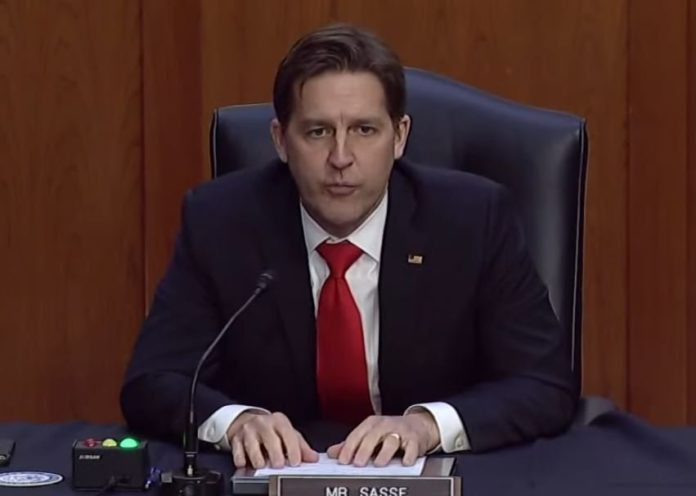Sen. Ben Sasse (R-NE) announced Friday evening he will vote against the nomination of Judge Ketanji Brown Jackson to the Supreme Court. Sasse, who sits on the Senate Judiciary Committee, was the only Republican on the committee who did not sign a letter demanding copies of probation report records on child porn cases handled by Jackson that were leaked to Democrats and the media. That had led to concern Sasse might vote Jackson out of committee.
A tie vote on the evenly split Judiciary Committee (11-11) would mean the full Senate would have to vote to bring Jackson’s nomination to the floor. A tie vote in the 50-50 Senate could be broken by Kamala Harris. Sen. Joe Manchin (D-WV) announced earlier Friday he intends to vote for Jackson.
Sasse Statement on Judge Jackson No Vote
March 25, 2022
Senator Ben Sasse, a member of the Senate Judiciary Committee, issued the following statement regarding the upcoming vote on Judge Ketanji Brown Jackson’s nomination to the Supreme Court.“Judge Jackson is an extraordinary person with an extraordinary American story. We both love this country, but we disagree on judicial philosophy and I am sadly unable to vote for this confirmation.
“Judge Jackson has impeccable credentials and a deep knowledge of the law, but at every turn this week she not only refused to claim originalism as her judicial philosophy, she refused to claim any judicial philosophy at all. Although she explained originalism and textualism in some detail to the committee, Judge Jackson refused to embrace them or any other precise system of limits on the judicial role.
“Instead she seemed to imply, like Justice Elena Kagan, that originalism is just one of the tools judges use – not a genuine constraint on judicial power. Judge Jackson’s record makes it clear she has more tools in her toolbox.
“It’s important to study the McGahn case, one of the few times Judge Jackson was asked to decide a novel constitutional question. Instead of carefully examining the constitutional principles, rooted in the text, that should have governed that case, Judge Jackson created a new, implied constitutional right to sue; discounted separation of powers principles; and, under the guise of abstract “constitutional values,” shoehorned policy views about the presidency into her opinion. This is a pattern. In Make the Road New York and in AFL-CIO v. Trump – which Judge Jackson described as two of her most important cases – higher courts unanimously reversed Judge Jackson for exceeding her authority.
“As I made clear in our Tuesday and Wednesday exchanges, it is one thing to explain a judicial philosophy but quite another to agree to judge bound by such a system of restraint.
“Like so much of our public square, the Supreme Court confirmation process is broken and doesn’t build trust in either the Senate or the Supreme Court. Senators should have made fewer speeches, and Judge Jackson should have made her judicial philosophy clear and understandable to the American people. Unfortunately, neither of those things happened.
“I am grateful for Judge Jackson’s service and wish her and her family the best as she takes her seat on the Court, but I am unable to consent to the nomination.”



